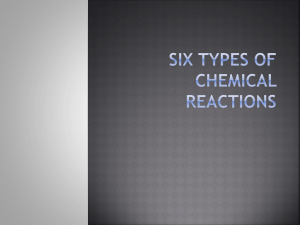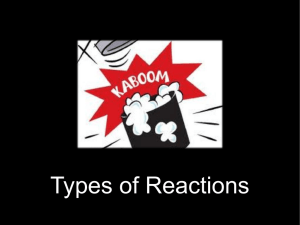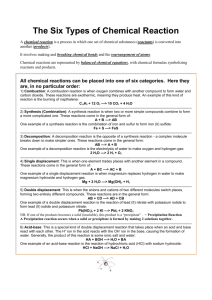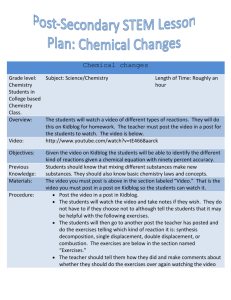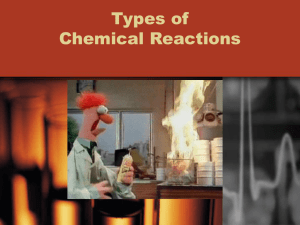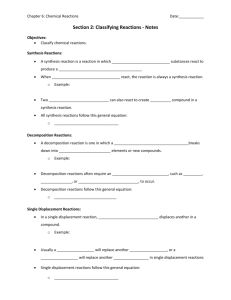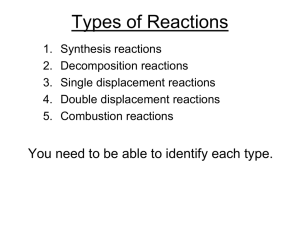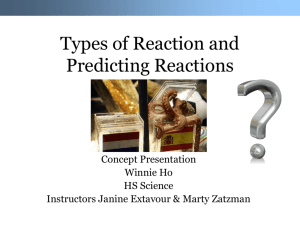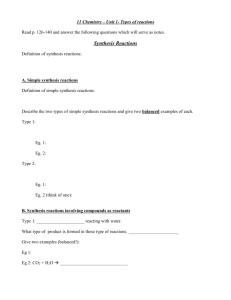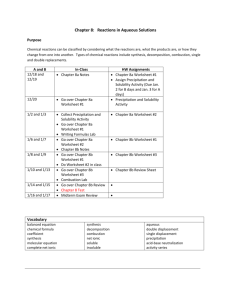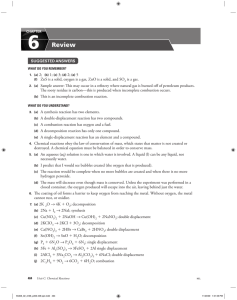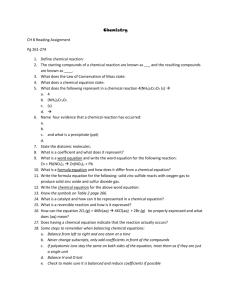Chemistry Web Quest: Types of Chemical Reactions
advertisement
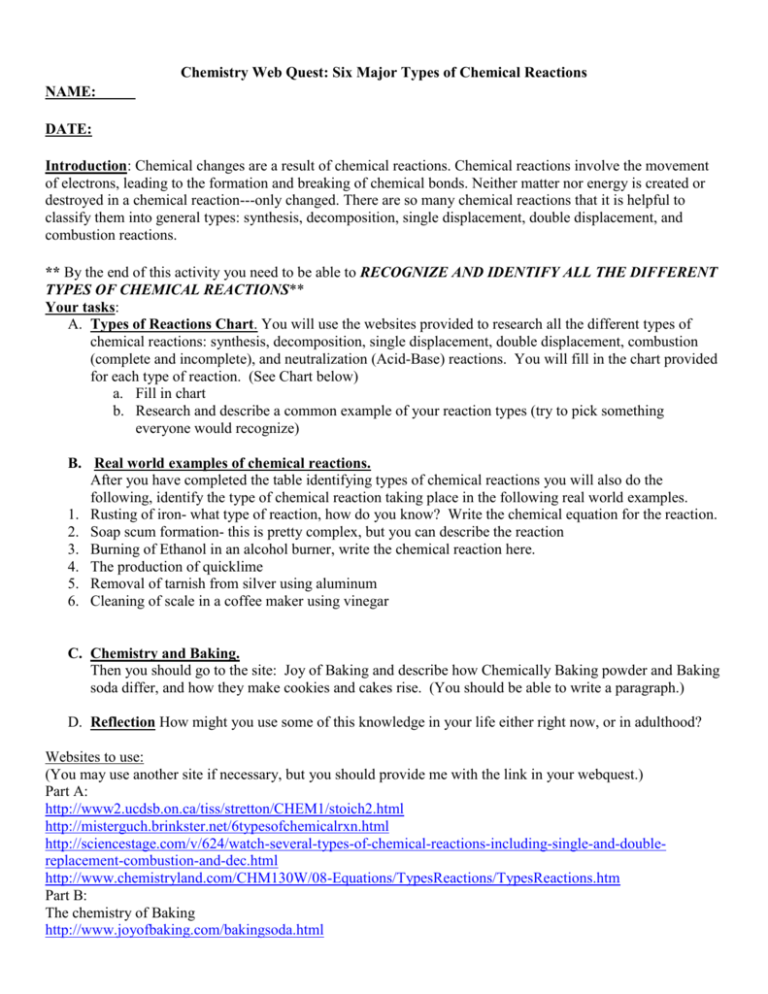
Chemistry Web Quest: Six Major Types of Chemical Reactions NAME: DATE: Introduction: Chemical changes are a result of chemical reactions. Chemical reactions involve the movement of electrons, leading to the formation and breaking of chemical bonds. Neither matter nor energy is created or destroyed in a chemical reaction---only changed. There are so many chemical reactions that it is helpful to classify them into general types: synthesis, decomposition, single displacement, double displacement, and combustion reactions. ** By the end of this activity you need to be able to RECOGNIZE AND IDENTIFY ALL THE DIFFERENT TYPES OF CHEMICAL REACTIONS** Your tasks: A. Types of Reactions Chart. You will use the websites provided to research all the different types of chemical reactions: synthesis, decomposition, single displacement, double displacement, combustion (complete and incomplete), and neutralization (Acid-Base) reactions. You will fill in the chart provided for each type of reaction. (See Chart below) a. Fill in chart b. Research and describe a common example of your reaction types (try to pick something everyone would recognize) B. Real world examples of chemical reactions. After you have completed the table identifying types of chemical reactions you will also do the following, identify the type of chemical reaction taking place in the following real world examples. 1. Rusting of iron- what type of reaction, how do you know? Write the chemical equation for the reaction. 2. Soap scum formation- this is pretty complex, but you can describe the reaction 3. Burning of Ethanol in an alcohol burner, write the chemical reaction here. 4. The production of quicklime 5. Removal of tarnish from silver using aluminum 6. Cleaning of scale in a coffee maker using vinegar C. Chemistry and Baking. Then you should go to the site: Joy of Baking and describe how Chemically Baking powder and Baking soda differ, and how they make cookies and cakes rise. (You should be able to write a paragraph.) D. Reflection How might you use some of this knowledge in your life either right now, or in adulthood? Websites to use: (You may use another site if necessary, but you should provide me with the link in your webquest.) Part A: http://www2.ucdsb.on.ca/tiss/stretton/CHEM1/stoich2.html http://misterguch.brinkster.net/6typesofchemicalrxn.html http://sciencestage.com/v/624/watch-several-types-of-chemical-reactions-including-single-and-doublereplacement-combustion-and-dec.html http://www.chemistryland.com/CHM130W/08-Equations/TypesReactions/TypesReactions.htm Part B: The chemistry of Baking http://www.joyofbaking.com/bakingsoda.html Part C: Real World Chemistry http://www.scienceclarified.com/everyday/Real-Life-Chemistry-Vol-2/Chemical-Reactions-Real-lifeapplications.html http://scifun.chem.wisc.edu/homeexpts/tarnish.html http://www.theguardian.com/lifeandstyle/2009/aug/23/how-to-remove-limescale Examples of Reactions: Synthesis Reactions: Decomposition Reactions: Single Replacement Reactions: Double Replacement Reactions: Combustion Reactions: Acid-Base Reactions: A) Synthesis Reactions: B) Decomposition Reactions: General equation: General equation: Word equation: Word equation: Chemical equation: Chemical equation: How to recognize reaction: How to recognize reaction: C) Single Displacement Reactions: D) Double Displacement Reactions: General equation: General equation: Word equation: Word equation: Chemical equation: Chemical equation: How to recognize reaction: How to recognize reaction: E) Combustion Reactions: i) Complete Combustion of Hydrocarbons: ii) Incomplete Combustion of Hydrocarbons: Word equation: Word equation: Chemical equation: Chemical equation: Reactants ALWAYS include: Products ALWAYS include: Reactants ALWAYS include: Products ALWAYS include: F) Neutralization (Acid-Base) Reactions (a special type of double displacement): General equation: Chemical Equation: Word Equation: How to recognize reaction:
